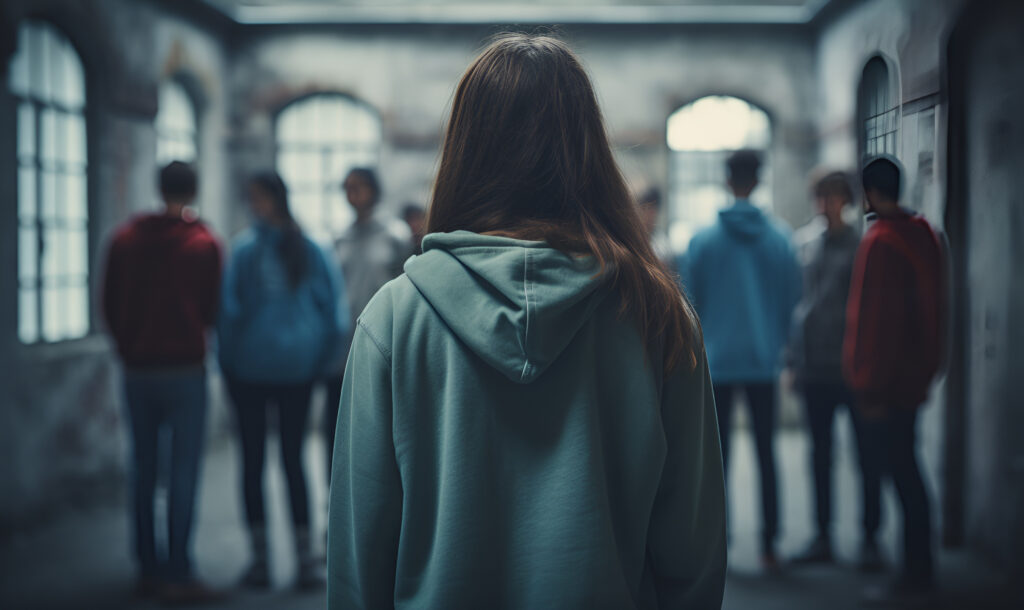Sometimes, our friends are the best parts of our lives. They give us emotional support, spread cheer, and/or help us become better. Whenever we’re around them, you feel happier and a better version of yourself.
On the other hand, certain friends are simply bad for you. They can be difficult to be around. They might engage in risky or criminal behavior. Your mom doesn’t like them. They’re exclusive, excluding, and toxic. If you’ve seen Mean Girls, the Plastics are a perfect example of the kind of clique we’re talking about.
But what are you supposed to do if these are the types of friends you have?
Spend More Time with Good Friends
First, you can try to increase the time you spend with friends who are good for you.
As Oprah once said: “Lots of people want to ride with you in the limo, but what you want is someone who will take the bus with you when the limo breaks down.” Good friends stick with you through thick and thin. They raise you up instead of putting you down. They protect you from harm and care about you. Good friends don’t each other get into dangerous, life-threatening situations.
If you aren’t ready to let go of a bad friend yet, it may be worthwhile simply to try and spend more time with the good friends you already have. Even if you don’t consider yourselves super close, you can always put in the effort to get to know them better.
At the same time, you may want to reconsider how much time you spend with the other kinds of friends—the ones who ditch you when the limo breaks down. Even if these friends are the life of the party, the popular kids at school, or the ones everyone wants to be close with, these kinds of friends can sometimes bring more stress into your life.
The Effect Bad Friends Can Have on You

Toxic friends, negative friends, codependent friends, friends who are a bad influence—they all fall into the same category. Research has shown that relationships that are more conflict-ridden than peaceful lead to an increase in depression and lower self-esteem.
Plus, if you have friends who engage in risky behavior, like drinking, using drugs, or skipping school, research has shown that you’re likely to be pressured to participate too.
In a study titled “If Your Friends Jumped Off of a Bridge, Would You Do It Too? Delinquent Peers and Susceptibility to Peer Influence” (Miller, 2009), the author writes that “association with delinquent peer groups is one of the most salient predictors of delinquent behavior.” She writes that teens who are highly susceptible to peer pressure have an even greater risk of getting into trouble with their friends.
It may be hard to cut off ties with such people, even if you know they’re bad for you. And you may not be ready for that step—at the moment. However, if you see that you’re developing emotional/mental health issues because of these peers, or you’re falling into substance abuse or risky behaviors along with them…you may be better off without these people.
Why is this so?
Certain people can hamper you from moving forward in your life. Even worse, they can cause you harm—both physically and emotionally.
Cutting Ties with Bad Friends
Let’s elaborate with an example from the world of teen mental health treatment. When a teen is ready for discharge from a mental health or drug rehab center, they sit down with their therapist a few days before they leave. After a lengthy discussion of friends who are toxic and friends who are supportive, they go through the teen’s phone together to delete contacts of people who could be detrimental to the teen’s recovery or trigger relapse. They do this because no matter how strong an adolescent is in their recovery, one bad friend can bring them back down to zero. On the other hand, good friends can impact you just as strongly. Research has shown that just adding one sober friend to your network can decrease your chances of relapsing by 25%!
At an adolescent mental health or drug rehab center, teens also learn how to find better friends. In Dialectical Behavior Therapy, there is an entire module devoted to Interpersonal Effectiveness. This skills-set focuses on making and managing healthy friendships (and relationships in general).
For example, DBT teaches you how to stick to your values. You don’t have to sell yourself or your values short, just to fit in with the crowd. If all your friends are doing something you don’t feel comfortable with—whether that’s playing a mean prank on your teacher, bullying a weaker kid at school, or even drugs—you can say no. You don’t have to over-apologize for your behavior or make up excuses/exaggerate. If these are true friends, they will accept you for your values and how you are now. DBT teaches you to maintain your self-respect.
You Don’t Need to Be Popular

There are many benefits of having friends. These include better self-esteem, lower rates of depression and anxiety, improved cognition, more empathy, better ability to cope with stress, stronger emotion regulation, and better mental health overall.
But you don’t have to be a social butterfly, or be friends with everyone at school, to attain these benefits of friendship. In fact, if you only have one or two close friends, you’re good. In one famous study, researchers followed 169 teens for ten years. They found that teens who had a few close, intense friendships at age 15 or 16 had lower levels of anxiety and depression at age 25 than their peers who tried to be friends with lots of people in their milieu…or, to use the exact wording the researchers used: “simply seeking to become a desirable companion within the peer group at large.”
That’s good news for teens who don’t consider themselves to be popular, or are worried about fitting in with the in-crowd.
Friends Don’t Always Last Forever
There are different types of friends. You can have situational friends, utility friends, childhood friends, acquaintances that are not-yet-friends, etc.
Not all of these friends last forever, nor is it a bad thing if they don’t. At every stage of your life, you may have a different social circle. While you may be feeling lonely in high school because you haven’t found your niche, you may be a social butterfly in college among other peers who understand you better.
Or vice versa.
While friends are important, both socially and for your mental health, the type of friend matters. While a good friend can impact you positively, a bad friend can hurt you.
So choose your friends wisely.






























































